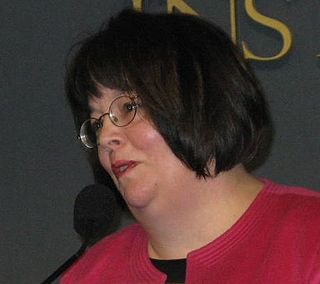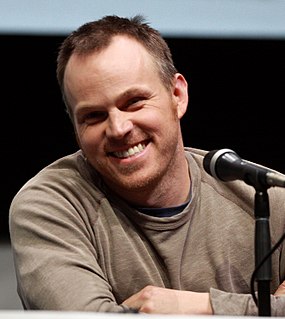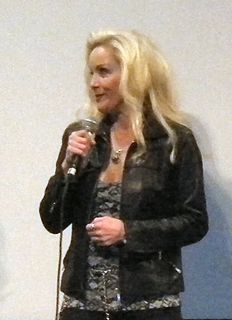A Quote by Maggie Stiefvater
One of the things that I really like about young adult fiction is that you can explore the relationships between teens and their parents. I definitely think that teens are a product of their parents. You either end up just like them or you consciously make the decision to be unlike them.
Related Quotes
The young adult literature is relatively new - it just kind of exploded in the 2000s. When I grew up, there weren't bookstores with sections dedicated to teen lit, nor was my generation raised reading books written specifically for us. Because of that, today we still think of books for teens as children's books and so when you write a book that includes sensitive topics, it just seems even more controversial. What's troubling to me about that is these are issues adults know that teens deal with. Not writing about them makes them something we don't, or can't talk about.
To me, the main difference between young people now and the people I was young with isn't so much style, it's the relationships they have with their parents. Their parents like them much more than ours liked us. Our parents weren't our friends. But now I see my friends on the phones with their, what, 30 - year - old kids? And they're talking about feelings.
I do enjoy talking about how everything's changed and I'm fascinated by it, and I can spend my time worrying, like, "Are we going to appeal to teens?" But then, if I were to try to make a record for teens, I'd be doing exactly what I said I didn't want to do. That'd be posturing. And I'm watching other people trying to do that, and they all look stupid. But for some of them, it's working, so cash in.
For me, there were a few things in the Spider-Man comics that I thought were really interesting. There's this story about Peter's parents and where he came from, and I thought that it was really interesting to explore the emotional consequence of someone whose parents had left them, at a very young age.
I think both of my parents are unique in the way they don't live their lives as celebrities. They're both artists, first and foremost. My mom lives a very private life. So does my father. You don't really see them in the tabloids or anything like that. I think that's definitely a decision you can make.
Having to parent your mother or father is a challenge that way too many teens have to deal with. Teens whose parents are dealing with substance abuse, financial hardship, job loss, mental illness and divorce deserve our love, support, and compassion. I wish America would stop judging and criticizing teens and instead, try to understand the battles they have to fight every day.
I really put the fear of God into my son, because children are such sponges. The earlier you teach them the law of the land, the easier they'll accept it as an adult. I think parents who shelter their children are making a huge mistake. Kids are really pretty amazing. They can handle a lot. It's just us parents. We think we need to protect them, and then when the real world comes in, they're shattered. So I think I did the right thing in my parenting.
The thing that I find interesting about teens now is that no matter how desperate we seem to be taxonomically 'othering' them, for one reason or another - because the Internet, because whatever - I feel like a lot of the benchmarks and the experiences are, you know, same for teens through time immemorial.



































